Racist memorial to slaver John Gordon removed from Dorset church
- Published
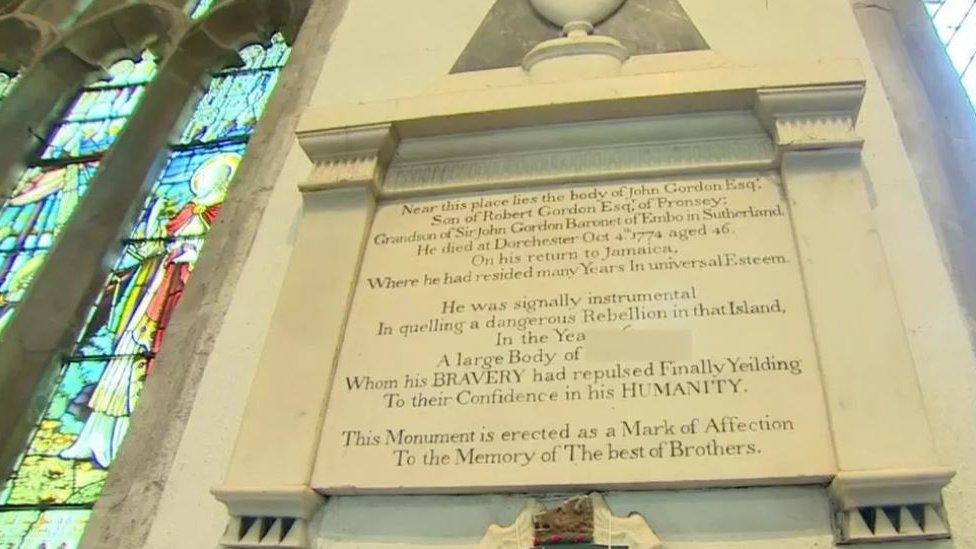
The stone describes John Gordon's part in the deadly suppression of slaves in Jamaica
A memorial to an 18th Century slaver has been removed from a church.
The plaque in St Peter's, Dorchester, commemorates plantation owner John Gordon's role in the deadly suppression of a slave uprising in Jamaica.
The memorial has had a temporary cover since September 2020 when the parish council voted to remove the stone.
The plaque, which includes what the church describes as a "totally unacceptable racist term", will now be relocated to Dorset Museum.
It is thought to be the first time a piece of contested heritage in a Church of England church has been removed to a museum.
Campaign group Stand Up To Racism Dorset previously described the plaque as "a blatant and explicit glorification of white domination and the suppression of enslaved people".
It said it was "offensive and has no place in public view".
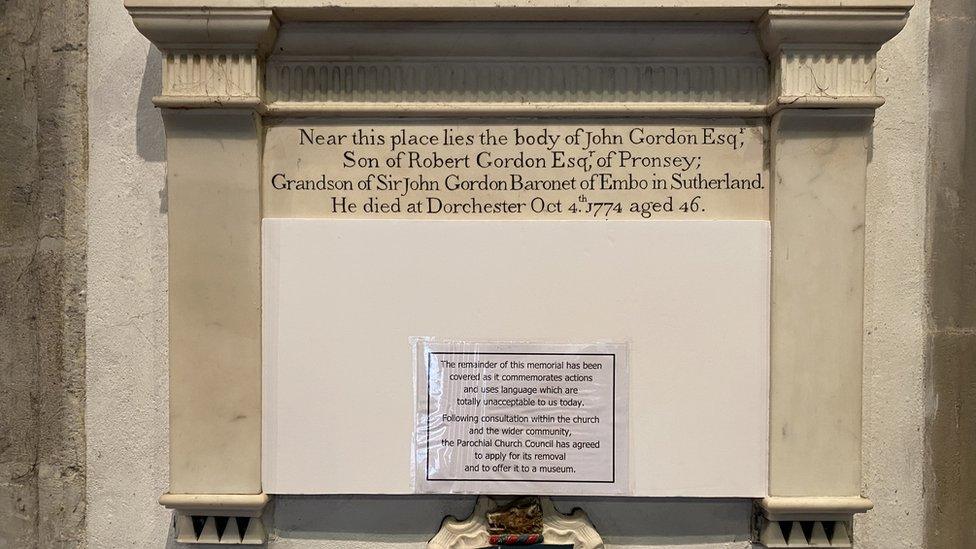
The cover includes a notice explaining why it has been installed
Gordon died in Dorchester in 1774, aged 46, during a visit to England.
The stone's inscription, which says he is buried nearby, hails his "bravery" and "humanity" for his "instrumental" part in quelling the 1760 uprising by slaves across Jamaica.
Up to 500 slaves were killed as colonial forces sought to put down the uprising.
A simple replacement plaque will only carry details of Gordon's life and death following consultation with his descendants.
Penny Sayer, Archdeacon of Sherborne, said: "Local people were asking if it was appropriate to have such a monument in a church, or is it more appropriate to have it somewhere else.
"It is really important that the story is told, particularly because it mentions Tacky's revolt which represents hidden voices, people whose stories are not often told.
"There were very careful steps taken by the church to ensure the monument was researched and the right process followed."
The plaque will be held on loan at Dorset Museum and is available to view on request.

Follow BBC South on Facebook, external, Twitter, external, or Instagram, external. Send your story ideas to south.newsonline@bbc.co.uk, external.
Related topics
- Published24 September 2020
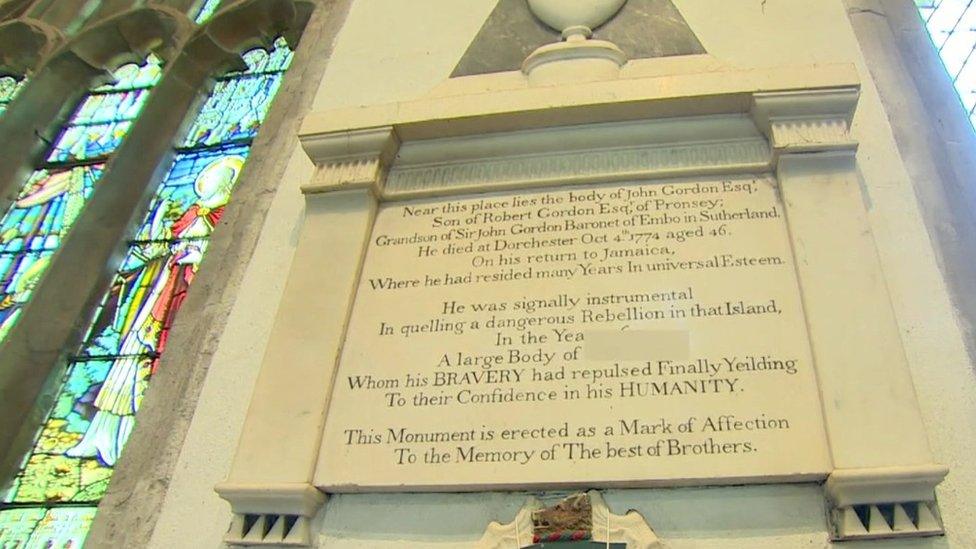
- Published24 September 2020
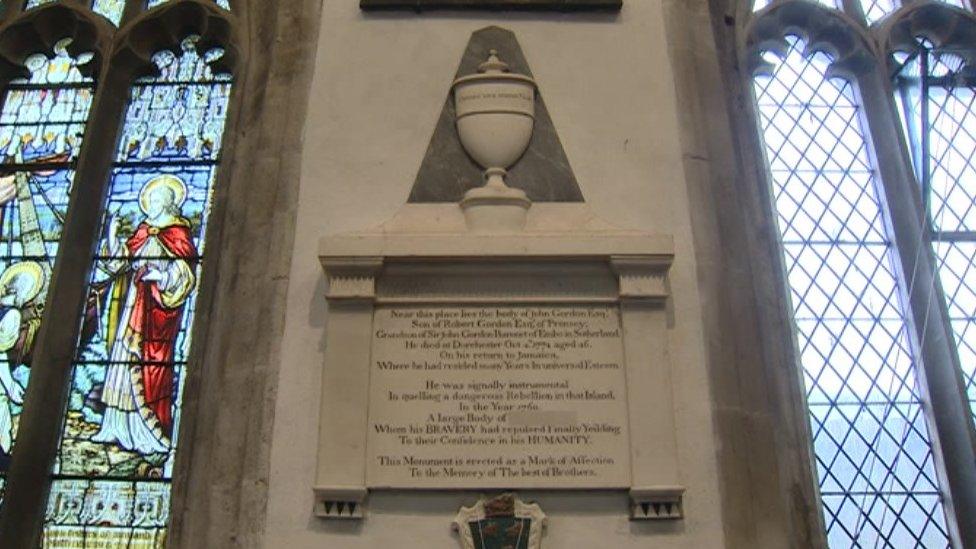
- Published7 July 2020
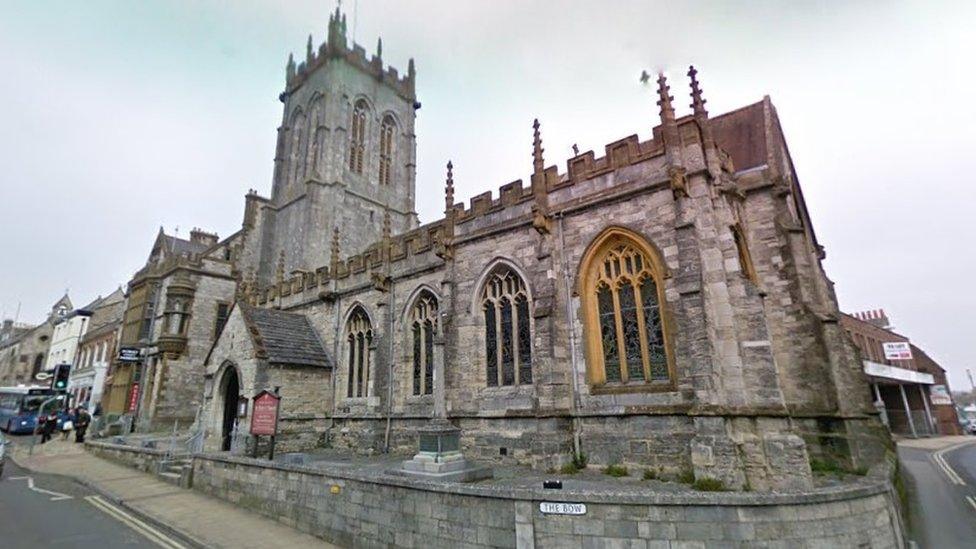
- Published8 June 2020
